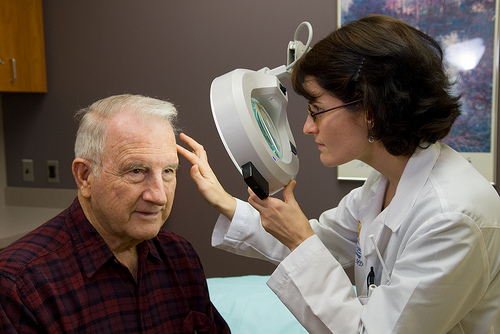
If You Have Psoriasis Of The Scalp, You Aren't Alone
In the United States, at least 7.5 million people have psoriasis of the scalp. The condition can be mild, causing almost no symptoms at all, or severe, causing thick, crusty, peeling skin and itching that goes on day and night. Generally, doctors diagnose psoriasis of the scalp when patients present at least three of the following symptoms: red lesions on the skin of the scalp, itch, dry skin, dandruff, silvery-white scales, burning, or soreness. No one knows what causes psoriasis of the scalp, but a number of over-the-counter products, simple changes in lifestyle, and prescription medications used together usually help.

Who Gets Psoriasis Of The Scalp?
In the United States, epidemiologists tell us, 2.7% of the population gets scalp psoriasis or some other form of the disease. The condition can start at any age, although it is relatively rare in children under 10, and the average age of onset is 28. Different ethnic groups get psoriasis of the scalp at vastly different rates. In some South American native tribes there has never been a single reported case of scalp or any other kind of psoriasis, and in the Faroe Islands, which lie between Scotland and Iceland, about 4% of people have the itchy skin disease at some time during life. Scalp psoriasis is about twice as common in whites as in blacks, and occurs more often in cold climates.
- Important notification about information and brand names used in this slideshow!
- Photo courtesy of Eisfelder by Wikimedia Commons : commons.wikimedia.org/wiki/File:Psoriasisplaque.jpg
- Gulliver W. Long-term prognosis in patients with psoriasis. Br J Dermatol. Aug 2008.159 Suppl 2:2-9.
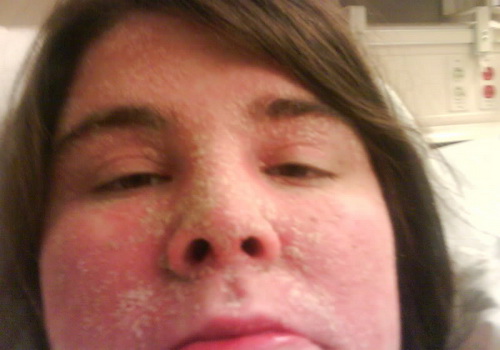
Psoriasis Spreading From The Scalp To The Face
A surprisingly common complication of psorasis of the scalp is blepharitis, a condition in which the eyelids generate globs of yellow, sticky mucus that not only is an unsightly nuisance but that can also harbor bacteria. When these bacteria grow out of control, the result can be conjunctivitis, a condition of redness, itching, burning, and inflammation that can interfere with vision and lead to even worse diseases. Psoriasis almost always precedes blepharitis, and blepharitis almost always precedes conjunctivitis. Fortunately, only about 1 in 10 people who has psoriasis of the scalp ever develops complications in the eyes. Typically there is redness and excessive tear production, but loss of sight due to psoriasis itself is unknown.
- Important notification about information and brand names used in this slideshow!
- Photo courtesy of buffieriley by Photobucket : media.photobucket.com/user/buffieriley/media/Psoriasis%20pics/buffieshairstyleandhalloween087.jpg.html?filters[term]=psoriasis%20face&filters[primary]=images&filters[secondary]=videos&sort=1&o=1
- Rister, Robert Stephen. Healing without Medication (Laguna Beach: Basic Health Publications, 2003).
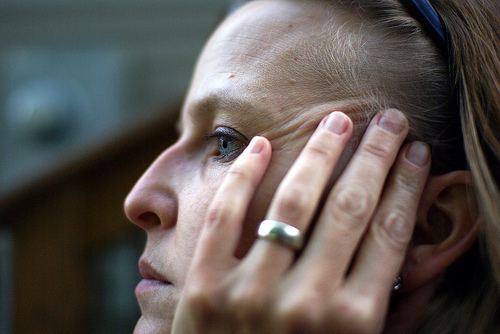
Psoriasis In The Ear
In addition to affecting the eyes, psoriasis can also occur in the ear. In fact, psoriasis in the ear is about twice as common as psoriasis in the eyelids, about 1 in 5 people who have psoriasis anywhere on their bodies experiencing psoriatic inflammation in the outer ear at some point in their lives. Involvement in the ears is about twice as common in women who suffer psoriasis as it is in men who suffer psoriasis, most commonly occurring at the ages of 10 to 29. Medical treatment occasionally produces spectacular results in treating ear psoriasis; some people experience complete cure of the disease not only in the ears but in their entire bodies after taking a drug normally prescribed for diabetes called rosiglitazone.
- Important notification about information and brand names used in this slideshow!
- Photo courtesy of John Lustig by Flickr : www.flickr.com/photos/john_lustig/2537877522/
- Pershadsingh HA, Benson SC and Ellis CN. Improvement in psoriasis with rosiglitazone in a diabetic and a nondiabetic patient. Skinmed. Nov-Dec 2005. 4:386-90.
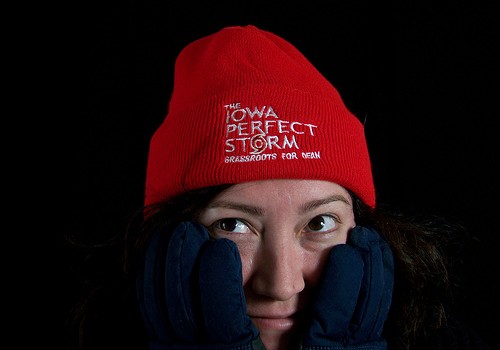
Dealing With The Embarrassment Caused By Psoriasis
People who have psoriasis typically find that it causes social awkwardness, especially when the condition strikes during childhood or adolescence. Often other children and even their parents will assume that the child or teen who has scalp psoriasis has lice (nits), even though there is no trace of the pestiferous parasite anywhere on the body. What actually happens in psoriasis is the skin sheds cells hundreds and hundreds of times faster than in normal skin. It is important for friends and classmates of children and teens who have the condition to know that it is not contagious, and it is important for children and teens who have psoriasis to get hair care to minimize flaking, scaling, and visible signs of the disease.
- Important notification about information and brand names used in this slideshow!
- Photo courtesy of Bloody Marty by Flickr : www.flickr.com/photos/slipstreamblue/2888346260/
- Scalp Psoriasis Treatment - Embarrassing Bodies. YouTube, http://www.youtube.com/watch?v=qeQLnHEKffc, accessed 5 August 2013.
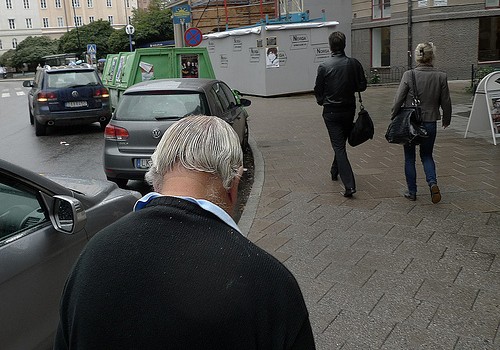
Psoriasis And Dandruff
Psoriasis is a condition that causes rapid growth and shedding of skin of the scalp. Dandruff actually is not caused by psoriasis, but rather by a fungus, Malassezia globosa, that consumes fats in the skin of the scalp and creates tiny flakes of dry skin in the process. It is possible to have both scalp psoriasis and dandruff, but the two conditions generally require different kinds of treatment. If you have both dandruff (small, white to yellow flakes of dry skin) and psoriasis (larger, peeling skin that can be silvery, white, yellow, or gray), then you may need both kinds of treatments.
- Important notification about information and brand names used in this slideshow!
- Photo courtesy of Johnny Söderberg by Flickr : www.flickr.com/photos/johnnysoderberg/6124615739/
- Rapini, Ronald P.
- Bolognia, Jean L.
- Jorizzo, Joseph L. (2007). Dermatology: 2-Volume Set. St. Louis: Mosby.
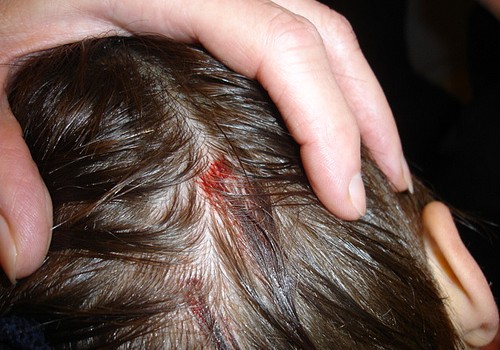
Avoiding The Complications Of Psoriasis
Psoriasis generally is just an embarrassing, itchy, nuisance, unless the skin becomes infected. The most important thing to remember about scalp psoriasis is that if you want to ditch the itch, you need to avoid scratching. The more you scratch, the more you will itch, and the more likely you are to break the skin so that it becomes infected. If you just can't stop scratching your scalp, first try a keratolytic shampoo. This is a shampoo that has to be applied to the skin of the scalp, not just the hair. Allow the shampoo to soak in, and then wash it out with warm water, never hot, taking care not to dry your hair with a blow-dryer. Keeping the scalp cool and moisturizered will reduce itching.
- Important notification about information and brand names used in this slideshow!
- Photo courtesy of Joe Goldberg by Flickr : www.flickr.com/photos/goldberg/3455127635/
- Psoriasis Treatment Strategies, WebMD, http://www.webmd.com/skin-problems-and-treatments/psoriasis-8/treatment, accessed 5 August 2013.

When Psoriasis Causes Hair Loss
When people who have scalp psoriasis lose hair, it usually is not due to the psoriasis itself. Loss of hair is usually caused by scratching the itch that scalp psoriasis causes 24 hours a day. Fortunately, this kind of hair loss is usually reversible if you can just go about 8 weeks without scratching. To stop the scratching that causes the hair loss, get a shampoo that contains either salicylic acid (an anti-inflammatory chemical related to aspirin) or coal tar (also in most anti-psoriasis shampoos). Apply the shampoo to the scalp, not to the hair, and use either at least twice a week or as often as your doctor directs.
- Important notification about information and brand names used in this slideshow!
- Photo courtesy of Nico Hogg by Flickr : www.flickr.com/photos/nicohogg/3076853823/
- Scalp Psoriasis Remedies. WebMD, http://www.medicinenet.com/scalp_psoriasis/article.htm, accessed 5 August 2013.
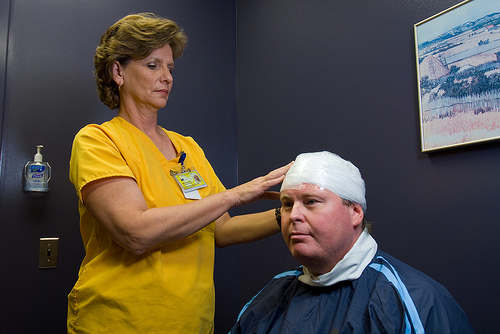
Treating Psoriasis
It is always best to work with you doctor to get psoriasis under control, but here is one tip for controlling this troublesome skin condition that most doctors overlook: Diet and weight loss usually help resolve the disease. Although psoriasis is not only caused by inflammation, it is aggravated by inflammation, and obesity causes body-wide inflammation, especially in tissues that have a relatively high fat content, such as the skin. It is important to understand that not just any kind of weight loss reduces the severity of psoriasis. Only weight loss made possible through restricting calorie intake will improve the symptoms of the disease.
- Important notification about information and brand names used in this slideshow!
- Photo courtesy of UMHealthSystem by Flickr : www.flickr.com/photos/umhealthsystem/5469379760/
- Gelfand JM, Abuabara K.Diet and weight loss as a treatment for psoriasis. Arch Dermatol. 2010 May.146(5):544-6. doi: 10.1001/archdermatol.2010.92.
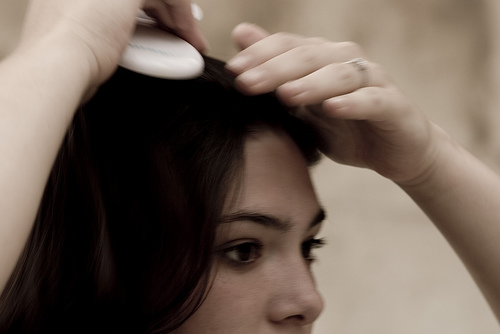
Combing Your Hair When You Have Scalp Psoriasis
The most important thing to remember about combing your hair if you have psoriasis of the scalp, or combing the hair of a child who has psoriasis of the scalp, is that you comb out flakes, but you do not comb off scabs. It is impossible to look good with big flaky pieces of dead skin in the hair. These have to be combed away. If the dried skin is still attached to the skin, don't try to comb it off. Instead, as part of shampooing the scalp, apply a psoriasis shampoo directly to the scalp and allow it to soak, according to product directions. Then rinse away as much of the plaque of dead skin as you can with pulling, tearing, or scratching, and allow the scalp to air dry.
- Important notification about information and brand names used in this slideshow!
- Photo courtesy of joão ornelas by Flickr : www.flickr.com/photos/joaoornelas/2869296817/
- Rister, Robert S. Healing without Medication (Laguna Beach: Basic Health Publications, 2003).


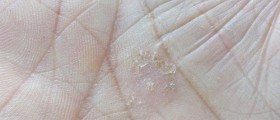
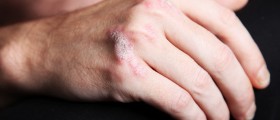

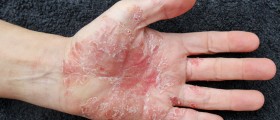
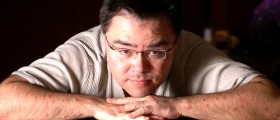
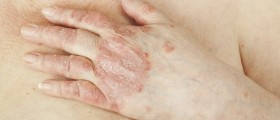


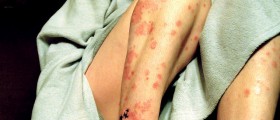

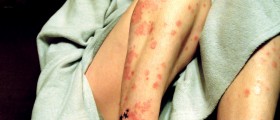


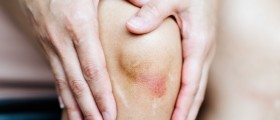
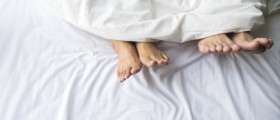

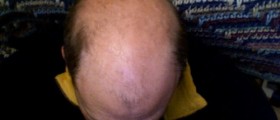
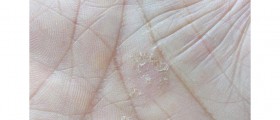


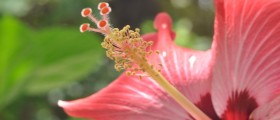


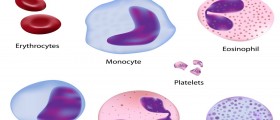
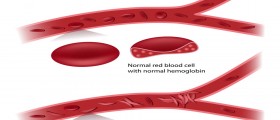
Your thoughts on this
Loading...